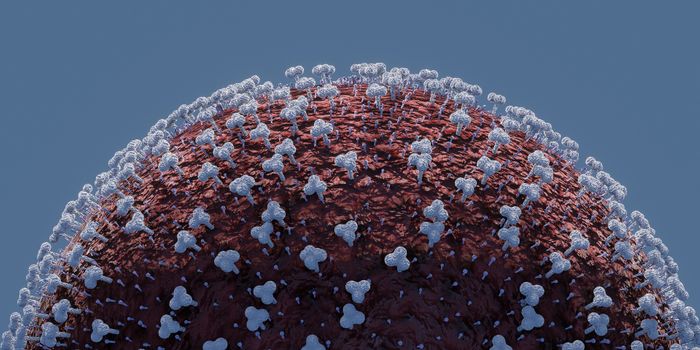Ginger May Help Slow Lupus or Antiphospholipid Syndrome Progression
Naturally occurring chemicals make more appealing medicines for many people, but there is not always evidence that they're effective. Ginger is one such product; it's known to contain antioxidants and been marketed as a compound with anti-inflammatory properties. It's a root that's been used in herbal medicine for thousands of years, but we don't know exactly what it does. Recent work has shown that a bioactive molecule found in ginger, 6-gingerol, can help counteract a biological pathway that's linked to autoimmune diseases in a mouse model. The findings have been reported in JCI Insight.
In this study, the researchers focused on the autoimmune disease lupus, which has been connected to a cause of blood clots called antiphospholipid syndrome. Both disorders can cause systemic inflammation and over time, may damage organs. In a mouse model of lupus or antiphospholipid syndrome, 6-gingerol could prevent a symptom of these diseases caused by the autoantibodies they generate: neutrophil extracellular trap release.
"Neutrophil extracellular traps, or NETs, come from white blood cells called neutrophils. These sticky spider-web like structures are formed when autoantibodies interact with receptors on the neutrophil's surface," explained lead study author Ramadan Ali, Ph.D.
Ali noted that these webs trigger autoantibody formation, contribute to clotting and damage in blood vessels, and are involved in the pathogenesis of lupus and antiphospholipid syndrome.
This work revealed that ginger may be able to prevent this from happening. When the mouse models were given 6-gingerol, NET levels in the mice went down, clotting was drastically reduced, and neutrophil enzymes called phosphodiesterases appeared to be inhibited. That reduced the activation of neutrophils. Whether the mice modeled antiphospholipid syndrome or lupus, it seemed that the inflammatory cycle of NET stimulation was broken.
Though clinical trials will be needed to confirm these findings in humans, the researchers are hopeful that they will hold true for people.
"Through my years of medical training I wasn't taught much about supplements, but it's something that so many patients ask me about," said study author and rheumatologist Jason Knight, M.D. "When Ramadan brought the concept to me, I was enthusiastic to pursue it in my lab, as I knew it would matter to them. Sometimes our patients give us really good ideas!"
While ginger will not become the primary treatment for people with lupus or phospholipid syndrome, it might be a helpful supplement that can help slow or even halt disease progression.
"As for basically all treatments in our field, one size does not fit all. But, I wonder if there is a subgroup of autoimmune patients with hyperactive neutrophils who might benefit from increased intake of 6-gingerol," Knight said. "It will be important to study neutrophils before and after treatment so we can determine the subgroup most likely to see benefit."
"Those that have autoantibodies, but don't have activated disease, may benefit from this treatment if 6-gingerol proves to be a protective agent in humans as it does in mice," Ali says, who's passionate about natural medicine research for rheumatic diseases.
Sources: AAAS/Eurekalert! via Michigan Medicine - University of Michigan, JCI Insight









